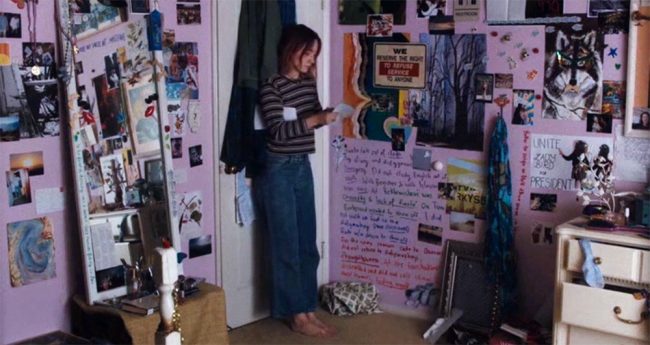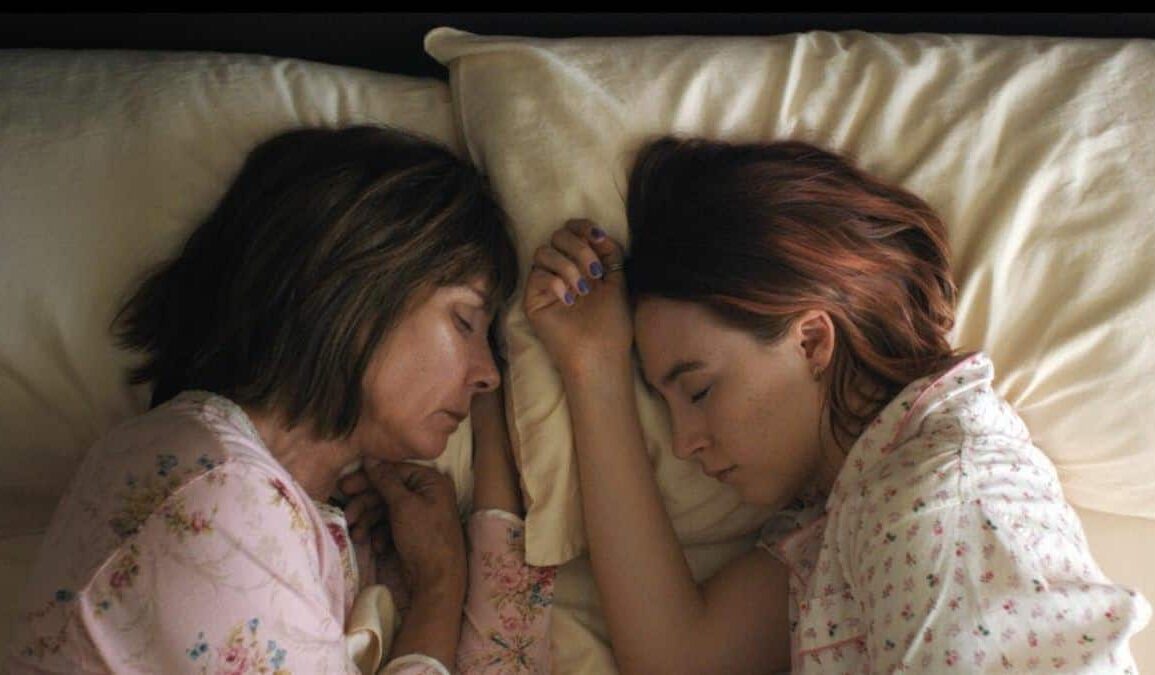It is 2002-03 academic year, New York is troubled with terrorism, and a young girl of 17 from a small countryside town called Sacramento with her hair dyed red insists that she must be called Lady Bird instead of Christine because it’s a name given to her, by her. Greta Gerwig, in her first written and directed film, is autobiographical with how she deals with it. But that’s not all; the film is a love letter of sorts for her town because it’s where she harmonizes her own self with Christine as one person.
 When Lady Bird’s Sister from school reads her college essay, she infers Lady Bird is more in love with Sacramento (also Greta’s own hometown) than she knows and likes to accept. Greta steers clear of youth-going-wild cliché in her central character.
When Lady Bird’s Sister from school reads her college essay, she infers Lady Bird is more in love with Sacramento (also Greta’s own hometown) than she knows and likes to accept. Greta steers clear of youth-going-wild cliché in her central character.
Christine, played by a formidable Saoirse Ronan, is a young teenager who is determined to leave her town for a fancy liberal arts college. She is ambitious yet grounded enough to know her grades clubbed with her parents’ finances wouldn’t secure her a seat at Yale or Berkley. She instead settles applying for secondary colleges with scholarship aids. Central to her character is her discordant relationship with her mother, something that’s much more than just a difficult teenager throwing tantrums.
Lady Bird has her differences with her mother, but she defends her to be “warm” when someone else calls her “scary”. She asserts her independent identity by calling herself with a name different than her own but asks her mother if she likes her when not loving her as a daughter. Her mother, played by a nuanced Laurie Metcalf, is grappling with her husband’s lay-off and her double night shifts to run a family of five. She embodies the sense of abandonment a parent feels with their children starting to grow up and identify themselves away from them. She is strong, vocal but is frustrated with being the tough mother to her daughter.
Also Read: How Bechdel Made Me A Cynic About Movies
Christine mirrors her personality, but she is a lot more sensitive, artistically inclined, and scoffs at the cost of someone sounding Republican. Christine continually seeks to identify herself with something unique, a struggle most of us have faced at one point as an adolescent, but she is lost at trying to find firm ground. She trades her best friend for a popular girl (a trope Gerwig employs from the high school movies from the 2000s), falls in love with a guy who she eventually realizes that she isn’t resonant with. She finds herself going back to her best friend, who she considers her a safe, happy place. Her uneasiness to fit into her new group resonates with our anxieties of the same.
The film at the outset seems very adolescent, but it is a trap Greta makes you fall for. The film sets you up with a bunch of women with strong, conflicted, personalities, parents who are in denial of their children growing up, teenagers finding out that their parents don’t exactly have it together as they believed, friends you are guilty of not having had their backs, and town that has grown under your skin despite you not realizing it.
Head over to Netflix to watch Lady bird now.

